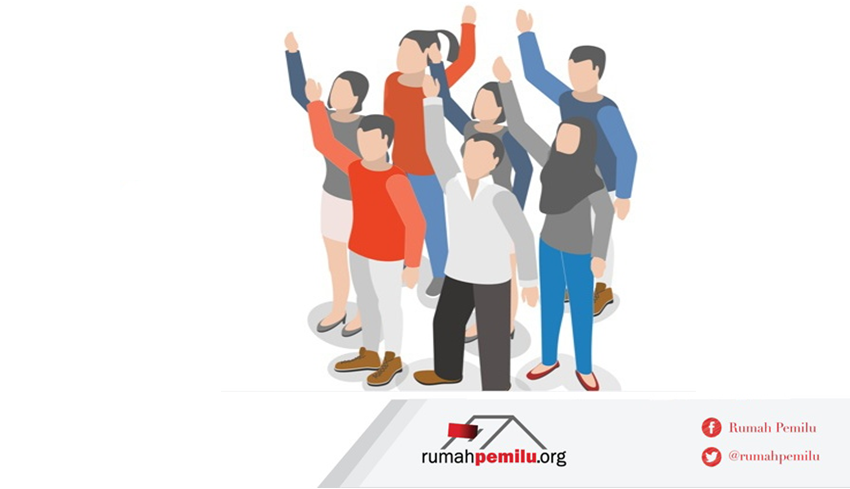
Actually, it is no longer relevant to question why the state needs to subsidize political parties. Law No.3 / 1975 on Social and Political Organizations (PPP, Golkar, PDI) had written finance of political parties and Golkar is obtained from membership fees, non-binding donations, and the help of state / government. Parties†subsidies are common to be applied in many democratic countries with a variety of circumstances.
The difference lies in the amount/percentage subsidy. There is a subsidy equal to the donation (Japan, France, and Denmark); there is also subsidy that is greater than the donation (Sweden, Austria, and Mexico). Parliamentary party in Indonesia is only subsidized for less than 2 percents of the total funds reported officially by the party. However, this fact is usually still difficult to accept the idea of a party subsidy.
In addition, there is jump logic while explaining the partyâ€s objectives to reduce corruption in Parliament and government. Actually, despite of partyâ€s subsidies, corruption is likely to occur. Partyâ€s subsidies are not directly related to be the cause of corruption by political elites who become public officials.
Adding party subsidy as a solution to eliminate corruption in the parliament has a similar logic to the addition of salary of board members as a solution to eliminate corruption. Â There is no connection. In fact, it could be due to the addition of party subsidies, corruption can grow quite large because of the increase of state funds allocated to the power shaft of weak oversight, transparency, and accountability.
Consequences of democracy
Indeed, the partyâ€s basic need for subsidies is a consequence of democracy. Parties and elections are two things that can not be separated from democracy. Democratic countries require parties to revive democracy. Democratic government must be responsible for the sustainability of the parliament and the party to grow up healthily.
Democracy and elections are the two sides of a coin. The party is a picture of the state on the two sides of a coin. If the party is a healthy, democratic and electoral picture will be spared from the disease.
Political and corruption expert, Marcin Walecki explain that political fund does not only require transparent and accountable system but also an obvious source. Like water in a clean glass, we want to drink it if we know that the water is free from toxin. State subsidies for parties are part of a clear provision of funds originating party.
Partyâ€s Independence
The value of particular political funds from the state will promote Partyâ€s independence. Value is according to the context of each country. Institutional placement of parties becomes principle: Will parties become public, semi-public or private?
The Indonesian Constitution puts the party as the only channel to have the president, members of House and Representatives and Regional House of Representatives. Party is the strongest channel to elect regional heads. Even many of DPD members are also party members. In this stage party can be interpreted as a 100% publicly owned by an institution that is reasonable if subsidies are close to 100%.
However, law on party states that another source in a form of membership contribution and non-formal donation (individual or company). Party can be a semi-public or private institution. Party is very likely to be owned by a few people or even experienced personification into sole possession that holds their companies like octopus. Subsidies needed to avoid the intervention of the ownership of a few people or a single ruling party.
Increasingly fluid ideology
Nowadays, ideology in the society is increasingly fluid. So that the attachment member of the party with the community based on the ideology is more difficult. This situation makes mass party ideology has great difficulty raising funds from the public.
Subsidies are needed to keep the party ideology. It is maintained through regeneration and education in internal political party and public. All require sustained funding that is definite, clear, and without intervention of ownership.
Pemahaman yang juga perlu kita jaga adalah peningkatan subsidi partai yang signifikan bukan lah solusi ketengan. Solusi ini harus menyertakan transparansi dan akuntabilitas partai, ragam bentuk pembatasan kampanye, dan penciptaan pemilu yang murah (aksesibel) dan partisipatif.
Without significant party subsidies, party will not pay attention to institution and party membership. Interval phase is without regeneration and political education. Parties recruit more popular people or wealthy people to survive in getting more votes from election to election.
Those three things that make us wonder why more parties are not democratic, not independent, and not ideological. Funding, one of the important aspects of the institutional party actually owned by the state comes from unhealthy, a handful /singularity party, and is not bound by the commitment of the collection/ideological expenditure.
The understanding that we need to keep is that the significant increase in subsidies is not a solution. This solution should include transparency and accountability of the party, various forms of restrictions on campaigns, and a creation of a cheap (accessible) and participatory election.
USEP HASAN SADIKIN
Translated by SL
 Rumah Pemilu Indonesia Election Portal
Rumah Pemilu Indonesia Election Portal




